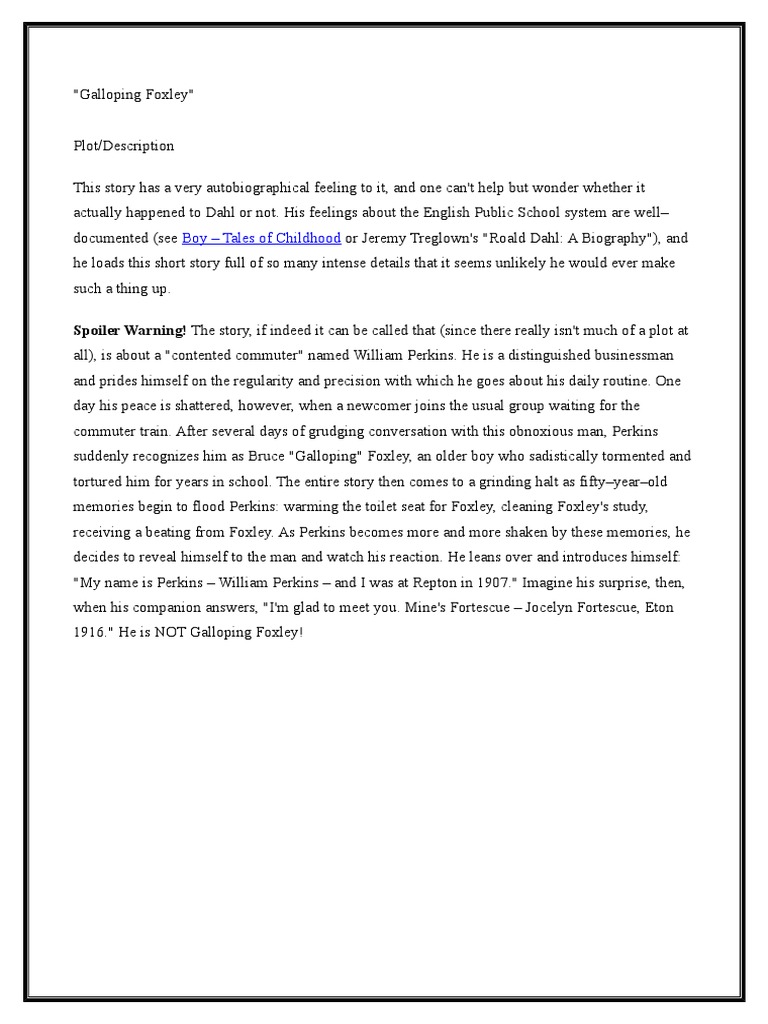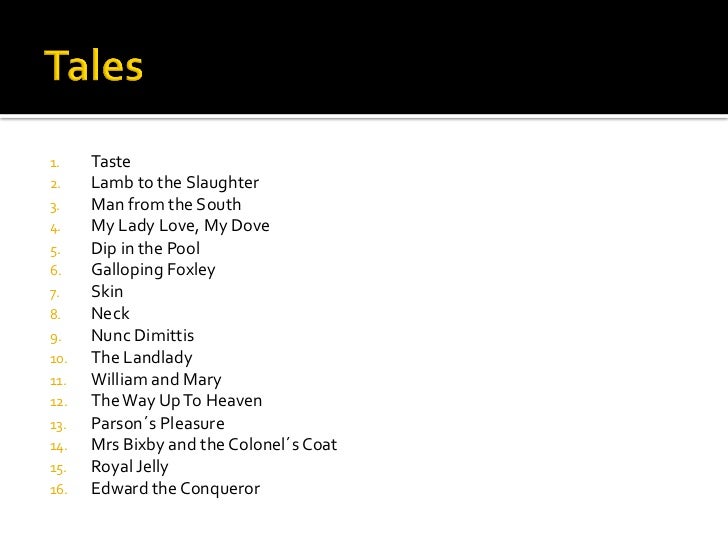In its short-story form, Galloping Foxley is an excellent and typically horrifying tale of British public-school abuses and ritual humiliation. I have always loved Dahl's most sinister and dark work and this story is darkened further by the clear note of autobiography evident within it. Galloping Foxley 'Galloping Foxley' is a short story by Roald Dahl that first appeared in the November 1953 issue of Town & Country. It was included in the 1953 collection Someone Like You, and was later adapted in an episode of Tales of The Unexpected.

'Galloping Foxley' Plot/Description. This story has a very autobiographical feeling to it, and one can't help but wonder whether it actually happened to Dahl or not. His feelings about the English Public School system are well– documented (see Boy – Tales of Childhood or Jeremy Treglown's 'Roald Dahl: A Biography'), and he loads this short story full of so many intense details that it.
My author study of Roald Dahl started with a reading of his Collected Stories while watching the accompanying episode of
while watching the accompanying episode of Galloping Foxley Pdf
Tales of the Unexpected. Each Friday I'll recap a story and show (with spoilers, just so you know), but I encourage you to read and watch them on your own if you're interested!

Galloping Foxley Review
